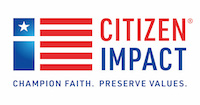Horse Racing and More Gambling for Georgia?
By Sue Ella Deadwyler of Georgia Insight
“Pathological gambling is extremely incapacitating and results in failure to maintain solvency or provide basic support for one’s family.” – American Psychiatric Association
When gambling expands, government expands.
More police are hired to investigate and prosecute increased crime; more judges and
courts are needed to investigate and prosecute gambling addicts’ crimes; more welfare
programs are needed to support gambling-related poverty; more agencies are created to
monitor and regulate gambling; more medical services are needed to treat diseases of
addicted gamblers; and more laws are needed to control crime and money launderers.
H.R. 1, prefiled November 15, 2012 by Representative Geisinger, proposes a constitutional
amendment to authorize horse-racing and pari-mutuel betting. If H.R. 1 gets a two-thirds vote in the General Assembly, the question of legalizing horse-racing and pari-mutuel betting would be on the November 2014 General Election and a simple majority vote could pass it.
Formerly, horse-racing proposals originated and died in the House. The Senate is interested now. The Study Committee on Horse Racing met for two hours November 27th to hear pro and con arguments from lobbyists, with pro speakers outnumbering the cons. The committee could listen but could not act, officially, until the session begins in January.
A Georgia Horse Racing Coalition member said 43 states already allow pari-mutuel betting
and 36 states have live horse racing, but he didn’t report that horse-racing flopped in Alabama. He cited a GSU study projection that gambling on horse races would increase tax revenue by $50 million per year, plus additional payroll and sales taxes. To that, Senator Davis asked proponents to be sure the $50 million would not include money from casino gambling.
Opposing the referendum is Brunswick Senator William Ligon, who wonders how many
voters would support horse racing if it, simply, siphoned lottery funding from the HOPE
scholarship program, which is already suffering revenue shortfalls. No response was reported.
Gambling is NOT harmless!
- The annual loss in fraud by pathological gamblers is $1.32 billion.
- The cost per pathological gambler each year is $13,586.
- The suicide rate of pathological gamblers is one in five (20 percent).
- 65 percent of pathological gamblers commit crimes to support their gambling habit.
- One-fourth of gamblers lose their jobs due to gambling.
- 28 percent of pathological gamblers file for bankruptcy or are in debt $75,000 to $150,000.
- Players with family incomes under $10,000 bet almost triple the amount of $50,000 earners.
- The rate of divorce for problem gamblers is nearly double the rate for non-gamblers.
Medical authorities classify compulsive gambling as a disease that affects eight to 12 million
addicts – the same as alcoholics, but significantly more than drug addicts. The suicide rate of spouses of compulsive gamblers is 150 times higher than the national average. Compulsive gamblers commit about 40 percent of white collar crime; and almost 20 percent of wife abuse cases. Of compulsive gamblers, 20 percent are women and another 20 percent are teenagers.

Recent Comments